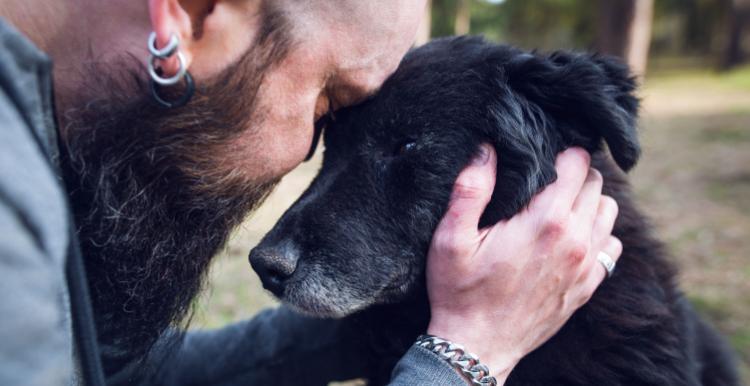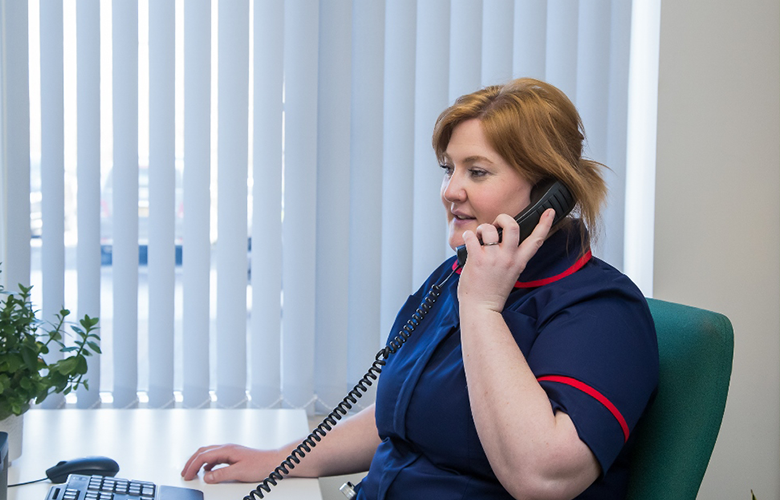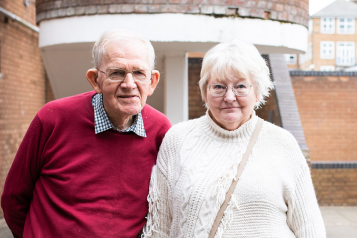Support available when you have a terminal illness - planning end of life care

Palliative care offers physical, emotional and practical support to people with a terminal illness.
It can be offered at any point after a terminal diagnosis. And should help you to live as well as possible until you die and to die with dignity.
What you can expect from end of life care
The organisations providing your care should ask you about your wishes and preferences, and take these into account as they work with you to plan your care.
They should also support your family, carers or other people who are important to you.
You can receive end of life care at home, in a care home, hospice or be cared for in hospital, depending on your needs and preference.
Choices about your care and treatment
Planning ahead can help you let people know your wishes and feelings while you're still able to explain them. And make sure that doctors and care staff are able to make decisions about your care based on what is important to you.
ReSPECT at the end of life
ReSPECT stands for Recommended Summary Plan for Emergency Care and Treatment.
And is a process that helps your care teams understand what would be important to you in an emergency. This includes what types of care or treatment you would or wouldn't want to receive.
As you may not always able to make decisions about your care in an emergency, talking about what you would want to happen in advance is important.
You can ask your GP or care organisation if you would like to complete a ReSPECT plan.
Help with money
Ask your GP, hospital doctor or nurse to refer you to a hospital social worker or community social worker to help with your finances. As well as that, you can check if you are eligible for any benefits, or perhaps there are certain charities that can help
Share your story
Have you had a recent experience of end of life care and want to talk to us about it?
Our information team are experienced in listening to difficult stories and helping people find support. So do give them a call on 0330 355 1285 (local call rate) or click the link below to share your experience online.
Palliative care hub for Cambridgeshire

Free out of hours advice is now available for patients, relatives and friends supporting people with life limiting illnesses.
Palliative Care Clinical Nurse Specialists answer calls and give expert advice and guidance to all, whether support is already in place, or not.
The hub will act as a gateway to other services: signposting callers to other healthcare professionals where helpful; and/or completing referrals to specialist services as needed.
It is now open 24 hours a day.
Dial 111 and select option 3
Protecting your rights
Mental Capacity
When you are no longer able to make decisions for yourself, your rights are protected by the Mental Capacity Act and the Deprivation of Liberty Safeguards.
It covers decisions about day-to-day things like what to wear or what to buy for the weekly shop. As well as serious life-changing decisions like whether to move into a care home or have major surgery.
Find out more about the mental capacity act
Lasting Power of Attorney
This is a legal document that lets you appoint someone to make decisions or act on your behalf if you are not able to do this yourself any more.
There are two different types of power of attorney:
- health and welfare
- property and financial affairs
You can set up one or both.
Find out more about setting up a Lasting Power of Attorney
Advance Decision (Living Will)
A living will is a form which lets you refuse any medical treatments that you do not want to be given in the future.
It will only be used if you lack mental capacity to make or communicate a decision for yourself.
You can write an Advance Decision yourself.
Starting conversations about dying
Talking about death, dying and bereavement can be hard.
It can feel awkward or uncomfortable and sometimes, you just don’t know what to say.
Dying Matters is the campaign that’s trying to change that. Their mission is to break the stigma, challenge preconceptions and normalise public openness around dying.
Further information
For information on bereavement support, see our advice article 'Someone I love has died - bereavement support'


